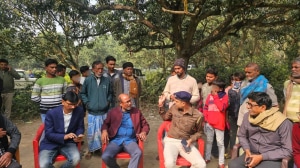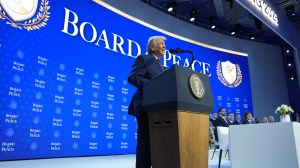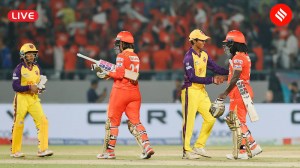Verma panel divided over carry-forward system
MUMBAI, June 20: The final round of discussions in the JR Verma Committee on Carry-forward system saw disagreements over whether exchanges ...

MUMBAI, June 20: The final round of discussions in the JR Verma Committee on Carry-forward system saw disagreements over whether exchanges should have a twin-track model or a uniform one for trading in the cash and forward segments.
quot;The balance seems to be in favour of the single-track system,quot; said Verma, chairperson of the committee formed to review the reintroduced carryforward system and suggest changes for improving its working. NSE managing director R H Patil, a member of the committee, is likely to attach a dissent note on this recommendation.
The committee was, however, unanimous in agreeing to reduce the margins from the present 15 per cent on the business marked for carryforward to 10 per cent. The committee felt that this would work better under the single-track trading system where carryforward and cash trades need not be segregated by the brokers.
Most committee members agreed with the view that 15 per cent was too high. quot;When the GS Patel committee had introduced the revised badla in 1996, the trading environment was quite different,quot; explained Verma. quot;Today we have daily mark-to-market margins and the broker8217;s net exposure limits as defined by the exchange. Besides, his open position as well as his base minimum capital is closely monitored. Hence the element of risk is highly reduced,quot; he added. quot;Technically, Badla will become a futures contract market,quot; he further stated.
The committee has also decided to consider the issue of treating badla financiers as buyers or sellers. Hence they will be levied margins to cover the risk element.
The representations made for the revival of badla by various exchange officials had also recommended the removal of the 90-day time-limit to square off a member8217;s carryforward position. The committee has decided to do away with this time limit along with the net exposure trading limit of Rs 5 crore fixed for each member.
Of the various representations made by the Ahmedabad, Delhi, Calcutta, Mumbai and National Stock Exchanges, only Dr RH Patil of the NSE seems to have advocated a different model which emphasises the need for a twin-track system. Dr Patil was keen to separate forward from cash trades and stressed the need for integrity and transparency in the markets.
He is also reported to have recommended the system of upfront payment of margins in order to impart more safety to the markets.
The committee discussed issues relating to vyaj badla financiers. Of the various recommendations made, it was also decided that the financiers would have to be registered as members of the clearing corporation of the exchange to bring down the extent of risk borne in such carryforward transacations.
The issue of whether the financiers8217; securities or vyaj badla shares should be kept with the Clearing corporation was also discussed. The committee is likely to submit the final draft in a fortnight8217;s time to SEBI for final approval.
- 01
- 02
- 03
- 04
- 05































